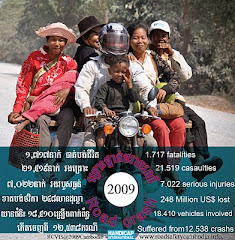Drivers:
• If you have to go out – Prepare yourself and your car before hand.
• In the event of journeys of a necessary nature inform family/friends of your estimated time of arrival (ETA) and carry a mobile phone.
• Ensure your mobile phone is charged. Do you have an in-car charger?
• Have protective clothing, including high visibility jacket and torch in your car.
• USE COMMON SENSE in bad weather and expect the unexpected.
• LISTEN AND HEED National and local radio/TV announcements regarding road and weather conditions for your journey.
• Ensure your car is roadworthy and has sufficient fuel for your journey. Carry out the following safety checks P.O.W.D.E.R . Petrol. Oil, Water, Damage, Electrics and Rubber.
• Clean all lights and ensure windscreen washer bottle is full. Add washer fluid or crystals to bottle NOT washing up liquid.
• Use screen wash as available in garages and motor factors to avoid the 'sparkle' of opposing lights on the windscreen, which can cause eye fatigue.
• Drivers should also have a quality pair of driving sunglasses in their vehicle all year round to combat eye strain, again causing eye fatigue.
• Use dipped headlights at all times of poor visibility.
• Do not use fog lights, front or rear, unless visibility is reduced to less than 100 metres, roughly the length of a football pitch.
• You should be familiar with the heating and ventilation controls of your vehicle so as to ensure all glass is kept clear.
• Allow extra distance between you and the vehicle in front especially when driving behind heavy goods vehicles.
• It takes longer to stop a vehicle on wet roads so slow down and allow extra distance between you and the vehicle in front. The 2 second rule becomes the 4 second rule in bad weather
and poor visibility according to the conditions.
•Take special care when driving behind goods vehicles as theygenerate a considerable amount of spray which reduces your visibility, hold back to where you can see their mirrors.
• Always try to see what is dictating the pace of the vehicle in front of you. (i.e. don’t tailgate).
• Watch out for falling/fallen debris on the road and vehicles veering across the road and the reaction of other road users.
• Notify the Gardaí about fallen debris on the roadway. NEVER stop on a motorway to remove debris.
• Control of a vehicle may be affected by strong cross winds. High sided vehicles and motorcyclists are particularly vulnerable to strong winds.
• Expect gusts at open areas, where gaps in high buildings and hedgerows create a wind channel.
• Check tyres, including the spare to ensure minimum tread depth of 1.6mm and guarantee correct tyre pressures. Think ‘Wear ‘n Air’.
• Flooding and slippery road surfaces make driving particularly hazardous so always drive with care and caution. Expect the unexpected.
• Be mindful of surface water. You don’t know how deep it is and it may contain hidden objects that could cause you to stall or damage your tyres.
• Be mindful of Aquaplaning on roads where 100/120kmh speeds apply.
• Aquaplaning occurs where the tyre thread fill with water and is unable to disperse it.
• After going through water, drive slowly with your foot on the brake pedal for a short distance - this helps to dry the brakes.
• Watch out for vulnerable road users such as pedestrians,
cyclists and motorcyclists and allow extra space.
2025 Invercargill mayoral election
-
create redirect
*New page*
#REDIRECT [[2025 Invercargill City Council election]]
1 hour ago


No comments:
Post a Comment